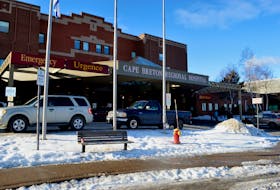GRAND FALLS-WINDSOR, NL — The Town of Grand Falls-Windsor continues to make special payments under the Pension Benefits Act to reduce the liability of an increasing deficit in its defined benefit pension plan.
The Dec. 31 review of the actuarial valuation recently came before council.
According to information presented in council, the total market value of assets at Dec. 31, 2016, was $8,458,700, while the current value of liabilities on a going-concern basis is $10,672,800, resulting in a funding deficit of $2,214,100. It is an increase of $279,600 from the deficit of the previous year.
The change will result in an increased annual of $47,200 for the town.
Mayor Barry Manuel said many municipalities have pension deficits.
He said it must be paid off the same as any debt and, in the case of the Town of Grand Falls-Windsor, has required several special payments in recent years to try to keep it as low as possible.
“I don’t think we are unique in this,” Manuel said. “It is always a concern when you have debt, and you have to manage that debt. In this case, our pension debt is certainly comparable, and I would even suggest probably in a little better shape than some other municipalities our size in the province.”
The mayor said it’s important for the town to continue to pay this debt.
He added there are many unknown factors with respect to this debt, but it is managed accordingly, he said.
The expense of providing a pension plan to current and past employees is part of doing business as a municipality, said Manuel. It is considered during the budgetary process as well as the town’s multi-year planning.
“We are taking steps to be conscious about managing, and even reducing, that debt number, so I don’t see any urgency here,” he said. “Nobody needs to feel like they are in any kind of trouble. We as a municipality are comfortable we can continue to manage this and that it would have no adverse effect on anybody’s pensions.”
Similar across the province
The situation is similar for many municipalities across the province, Craig Pollet, chief executive officer of Municipalities Newfoundland and Labrador (MNL) and Karen Oldford, outgoing president of the board, acknowledged during MNL’s annual general meeting in Corner Brook earlier this month.
With factors such as how many pensioners remain alive, additional retirements, and how the investments perform, there is uncertainty as to exactly how much of an impact this can have on a budget.
Oldford said every plan has built in options to make up such a deficit when they are evaluated on a regular basis.
Overall, Oldford said pension plan deficits are not overburdening municipalities. Larger municipalities have more employees and increased chances of a greater deficit, but also higher revenues sources to overcome it.
Smaller municipalities have fewer staff, thus a lesser burden.
“You have to budget for them,” she said. “You have a legal obligation to do it, so you have to find room within your budget. That may mean some things have to go by the wayside to accommodate it.”
Oldford said a lot of communities are turning to a defined contribution plan rather than the defined benefit plan of the past.
Under the defined benefit plan, retired employees are guaranteed a pension cheque based on their annual salary before retirement. The employer is obligated to pay that money, regardless of how much money has accumulated in the pension plan or the rate of return on the money that’s been invested in the plan.
Under a defined contribution plan, the retiring employee is guaranteed only the total amount of money — from employer and employee contributions, as well as interest — accumulated in their pension plan at the point of their retirement.

![['Image courtesy of Town of Grand Falls-Windsor']](https://saltwire.imgix.net/grand-falls-windsor-2515863.jpg?cs=srgb&fit=crop&h=568&w=847&dpr=1&auto=format%2Ccompress%2Cenhance)







